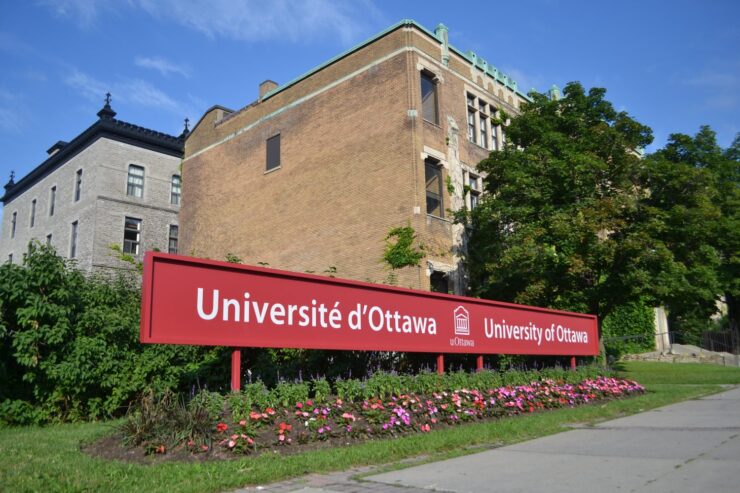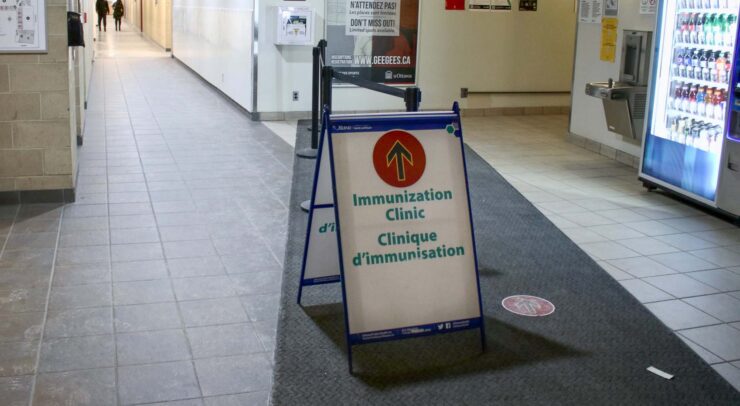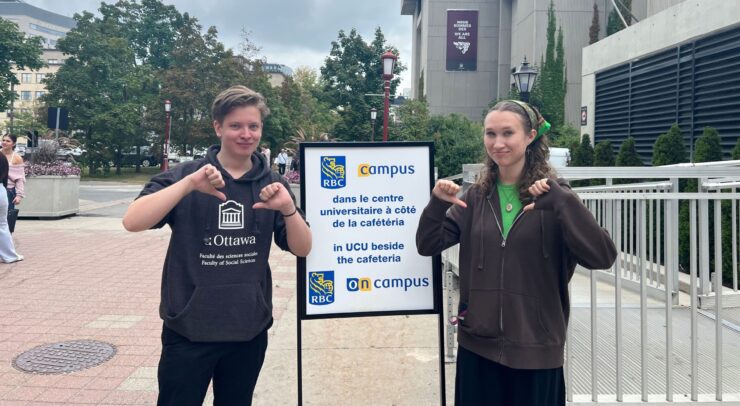POLICY CHANGES, OPEN FORUMS, AMONG SUGGESTIONS MENTIONED
The University of Ottawa Students’ Union (UOSU) met with University of Ottawa officials this week after campus security carded and handcuffed a Black student on campus last Wednesday.
Jamal Boyce, the student in question, was handcuffed by a campus security officer and detained on campus grounds for over two hours for not having identification on hand, before being released.
The incident resulted in U of O president Jacques Frémont opening an inquiry into racism on campus, but for the UOSU, this is not enough.
“An inquiry is always good, it’s never enough,” said Sam Schroeder, the UOSU’s advocacy commissioner. “There need to be action steps to follow.”
The UOSU say they have met with Boyce to “touch base on collaborative action steps” the student union can take to address the incident.
“I acknowledged that I’m white in the equity commissioner position, so I wanted to make sure that everything I was thinking was run by him,” said Arielle Lavallee, interim equity commissioner of the UOSU.
“We completely support and stand with (Boyce) on this, (and) we’re looking at what we can do.”
One of the things the UOSU hopes to see change is Policy 33, the university’s policy on carding.
“It needs to be either heavily reformed or abolished, because it’s obviously being used for a racist agenda,” Lavallee told the Fulcrum. “It’s not like it’s this one situation (that) took place, there’s a history of this.”
Schroeder added that the UOSU met with the university’s administration this week to discuss the changes they’d like to see. For Schroeder, this includes the detention policy.
“There’s no public policy, so we have to wonder, ‘what standards are you following for these detentions?’ There are all kinds of questions, and not having a policy that is publically available, is incredibly problematic,” he said.
The UOSU is also calling on the university to formally apologize for the incident that took place, as well as for similar incidents in the past that have recently come to light.
“In (Fremont’s) statement, there was no taking responsibility, no formal apology, and we’d really like to see that from the university — to acknowledge that these sorts of things do happen, and they happen because of policies the university has,” Shroeder said.
However, he says he also believes that “the university understands the gravity of the situation.”
“I think they are looking for ways they can improve, and I hope they take this opportunity to do that,” he said, noting that the UOSU will continue meeting with the university’s administration.
In a statement also released to Facebook, the UOSU called for students to share their own stories of similar incidents to “build a wealth of information to the administration (to show that) this is not an isolated incident, this is a series of events that continue to take place and be ignored,” according to Lavallee.
The statement also proposes an open forum for racialized students to come together and “share their opinions, feelings, and suggestions,” for reconciliation.
“We acknowledge that there is anti-Black racism present on our campus right now, we stand with (Boyce), and we stand with any other student who has experienced racism on this campus, whether it was a microaggression or something a lot larger,” Lavalle said.
“I would love to see recommendations actually taken into action by the University of Ottawa’s administration.”
The Black, Indigenous and people of colour (BIPOC) caucus of the Association of Professors of the University of Ottawa released an open letter Sunday condemning racism both at and within the U of O and wrote the incident last week left them “horrified and appalled.”
“Racial profiling, carding and harassment of Black students has no place at the (U of O) and runs contrary to the university’s publicly declared commitment to equality, diversity and human rights.”
The caucus’s letter asks the university to condemn the incident and lists 10 concrete “steps to address systemic racism,” including apologizing publicly to Boyce, making counselling available to students and employees impacted, conducting an internal and external investigation through an independent party, and removing the security officers involved from their positions.
The caucus proposes consulting with BIPOC and LGBTQI2S+ peoples on their concerns and needs to feel welcome and safe on campus, making both anti-oppression and anti-racism training mandatory for security and all university personnel, and the amendment of Policy 33 to prohibit carding on campus.
Among the other steps listed are thoroughly reviewing the training and policies governing Protection Services along with previous complaints brought forward and making public campus security statistics on an ongoing basis.
The caucus asks Frémont to meet with them as soon as possible to discuss these steps.
Another open letter dated last Friday is also circulating. It’s signed by 36 professors, including a handful from Carleton University.
“We are deeply concerned about the traumatic impact of this incident on the student as well as the larger issues of anti-black racism and racial profiling at the (U of O) and in our wider community,” they write.
“We call on the University of Ottawa to protect Black, Indigenous and racialized students from racist violence on campus in sustained, visible and proactive ways.”





